When it comes to health problems, the road to recovery can sometimes be difficult. For people struggling with constipation, the struggle to move their bowels is often exacerbated by the constant lack of proper movement.
Since childhood, I have had to deal with constipation, and it was complicated for me to find something that helped. Finding the best foods to relieve constipation was barely impossible.
If you have constant bowel movements that are hard to pass, dietary changes can help.
Nowadays, vegetables are unseen on the plate of many of us. Though we have busy days, we return home and cook fast food like pasta, beef, and chips or even take fast food on our way home.
The inevitable consequence is that you have to stop or cut down on some of these food items since they are not digested well.
Constipation can cause various health problems, including fatigue, bloating, reduced nutrient absorption, and reduced immune function. And if it’s not painful, it can have a psychological impact too.
Many foods can help relieve it. Have a look at our list to find out which foods are great for your constipation.
Our list includes foods rich in dietary fiber, which helps your intestines maintain their natural order and get rid of waste. Find what works best for you!
Papaya
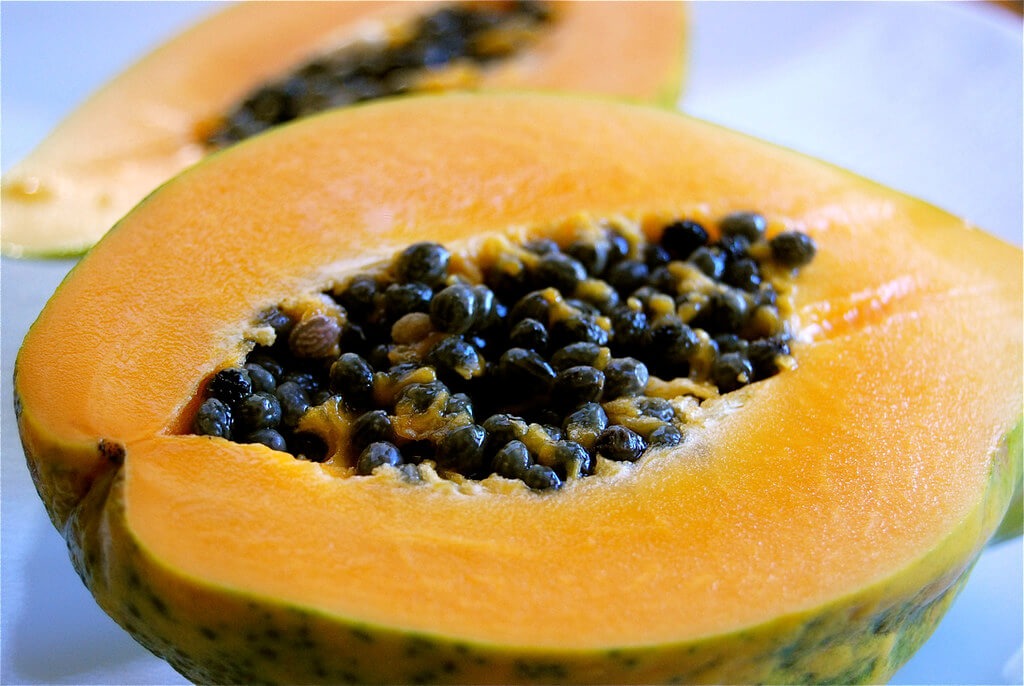
Papaya is a tropical fruit that is known for its ability to relieve constipation. It has a high content of Vitamin C and polysaccharides, which help relieve symptoms such as gas and bloating.
It is also a great source of fiber that can help reduce cholesterol levels, improve digestion, and regulate blood sugar levels.
Papaya is also known to contain enzymes that can help decrease inflammation of the stomach lining. There are certain types of papayas that have more of these nutrients than others.
Prunes
Prunes are a great food to relieve constipation. Many people have consumed them as a remedy for constipation since the olden days. This is because they are rich in fiber and water, which can help with digestion.
Prunes are loaded with sugar that, in some people, causes excess water to be pulled into the colon. It may cause diarrhea or constipation for them, depending on how it reacts with their digestive system.
Prunes contain many nutrients, including minerals like calcium, magnesium, phosphorous, potassium, sodium, and zinc. They also contain vitamins A, B1-6, and C.
It is hypothesized that prunes have a laxative effect because of the phenolic compounds they contain. These compounds are believed to promote some beneficial gut bacteria that contribute to the effect.
Prunes can be enjoyed on their own or in salads, cereals, oatmeal, baked goods, smoothies, and savory stews.
Kiwi
Kiwis are packed with fiber and make an effective remedy for constipation because they help move the stool through the intestine by softening it. It is known for its laxative properties.
The high water content also makes them ideal when you want to stay hydrated while relieving your constipation woes.
Kiwis are rich in vitamin C, which helps in reducing inflammation of the intestinal lining and prevents bowel damage caused by too much acidity in the stool.
A study of the intestine-cleansing ability of kiwi fruit found that it contains an enzyme, actinidin, which is believed to have a role in digestive health. It’s also theorized that kiwis work collectively to facilitate better bowel efficiency.
Kiwi fruits are delicious for many reasons. They are mostly eaten raw or in salads but can also be added to smoothies for a fiber boost.
Oranges
Oranges are a popular fruit that many people enjoy. They are high in fiber, low in calories, and contain Vitamin C.
Orange is the fruit that can help you relieve constipation. Citrus fruits like oranges are known to act as kidney cleansers and kidney tonics that help eliminate toxins in the body.
Oranges can be eaten raw, juiced, or used for baking, desserts, and other dishes. Each fruit has different nutritional values. Different citrus fruits have different colors, which are related to the tangy taste of the fruit.
Apple
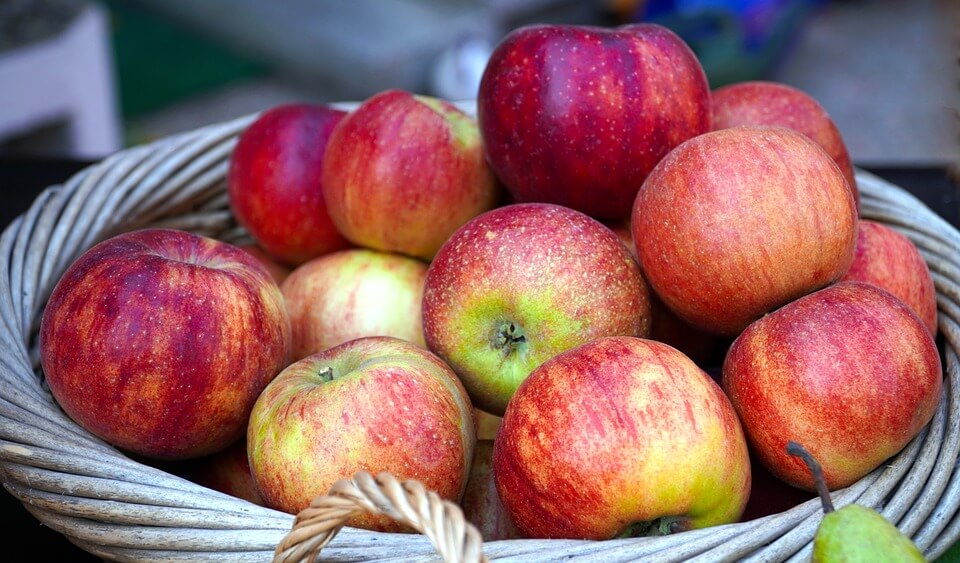
Chronically constipated people may find relief by eating apples. Apples are great for relieving constipation because they are high in pectin, a soluble fiber that helps with the proper movement of food through the gastrointestinal tract.
A recent study of 80 people with constipation found that pectin has benefits in speeding up stool movement, relieving symptoms of constipation & increasing the number of beneficial bacteria in the gut.
Some people say that eating apples can help improve digestion, relieve constipation, and boost fiber, so they may be a good food choice for those who want to eat healthier.
You can enjoy the whole or sliced up to add to salads or baked goods! Granny Smith apple varieties have the highest fiber content, according to research conducted by scientists.
Cranberries
Cranberries are fruits with a high water content, which makes them great for relieving constipation. They also have antioxidants and other nutrients that can help you to maintain a healthy weight.
They are also beneficial to people with digestive disorders. They can help reduce flatulence and bloating.
Cranberries can be used to make home remedies for treating urinary tract infections because they contain an antibacterial agent called polyphenol flavonoids that inhibit the growth of bacteria.
Cranberries are in season in winter, and they can be found in most grocery stores in bags or cans. These fruits are often served in cooked dishes such as jellies and jams, desserts, ice creams, and beverages. Despite their tart taste, cranberry sauce is a popular holiday dessert.
Figs
Figs are an excellent option for constipation relief, as they provide a balanced amount of nutrients to the body. They also contain insoluble fiber that can help to remove waste from your system.
In addition, figs have magnesium and potassium that can help to relax muscles in the gastrointestinal tract and release muscle contractions.
Interestingly, figs contain an enzyme called ficin, similar to the enzyme actinidin found in kiwis. It’s thought this may contribute to its positive effects on bowel function, alongside its high fiber content.
One way to enjoy figs is by making a tasty fig preserve or fruit spread, such as fig jam or fruit spread, which can be enjoyed on toast, toast with yogurt, or as an ingredient in oatmeal cookies.
Pears
A pear a day keeps the doctor away. It is a famous saying that is true with regards to pears. The fruit has several health benefits, such as being low in calories and providing many nutrients.
Pears are one of the healthiest fruits to eat. They are filled with nutritional value that will keep you healthy and energetic throughout your day. The high water content, antioxidants, silicon, potassium, vitamins, and minerals make it a great fruit to eat in general.
Pears can help relieve constipation because they contain water-soluble fiber that helps remove the excess bacteria in your intestines and helps to maintain your intestinal health. Pears also contain antioxidants like quercetin, an effective antibacterial agent that reduces the likelihood of infection and inflammation in the colon.
Avocado
Avocados are not only delicious but can also be used as a remedy for mild to moderate constipation.
They also contain the enzyme bromelain, which helps break down protein and remove excess mucus from the digestive tract.
Avocados are high in fiber, potassium, folate, and vitamin B6, which can help regulate bowel movements. They also have a lot of monosaturated fats that are associated with heart health and weight loss.
Blueberries
Blueberries have been used for centuries to soothe constipation, heartburn, and indigestion. They also help with blood pressure control and lowering cholesterol levels.
They act as an effective laxative because of their high fiber content, stimulating peristalsis and promoting bowel movement.
They also contain more antioxidants than other fruits, which has been shown to reduce inflammation in the body while keeping your immune system strong. They are often used in juices or smoothies to provide more nutrients to your diet.
Beets
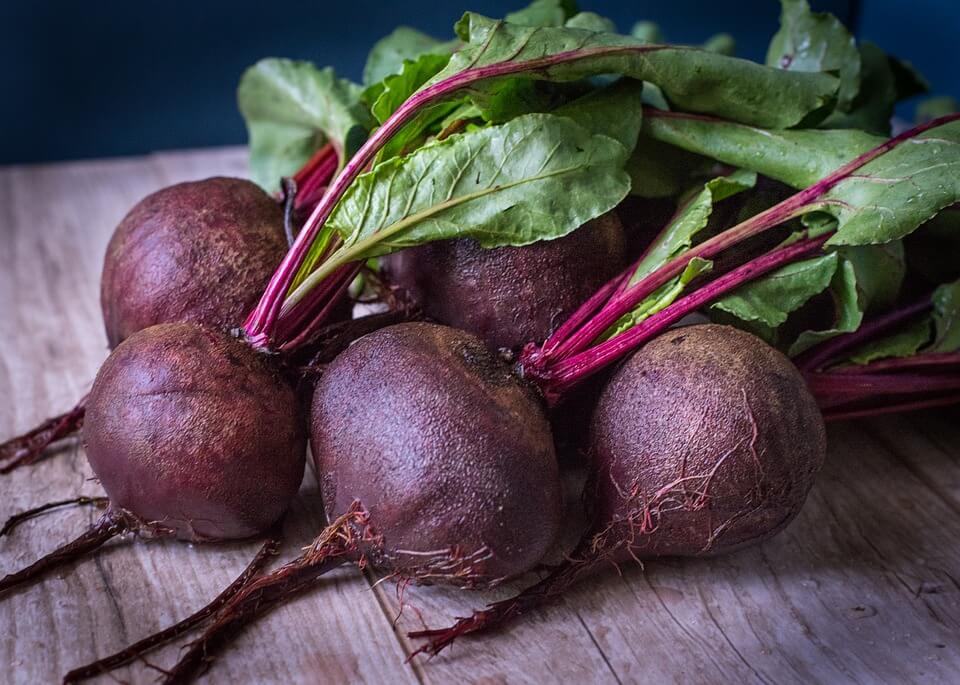
Beets are a raw root vegetable that is high in fiber, folate, and potassium. They are also rich in iron which helps to strengthen red blood cells.
Beets have been used for medicinal purposes since ancient times. The leaves of the beet plant have been used to treat constipation because of their high fiber content.
It is recommended that you eat beets twice a day to help relieve constipation and stay regular. Beets are best eaten raw or on salads, or they can be boiled or roasted with a bit of salt and pepper.
Broccoli
Broccoli contains high levels of fiber and water and several other nutrients such as iron, calcium, vitamin B6, folate, vitamin C, and potassium.
With its high fiber content, broccoli helps regulate bowel movements and flush out toxins in the body. It also contains folates that are essential nutrients for pregnant women or people who are trying to conceive.
Broccoli is a food that has been used for centuries for its cleansing and healing properties. It can be easily prepared by steaming or sautéing.
When preparing broccoli, it is important to cut the stem off, break the florets into smaller pieces, and blanch them in boiling water until they turn bright green.
Cabbage
While cabbage is typically thought of as healthy food, cruciferous vegetables are known to have laxative effects. They are high in fiber which can be beneficial to people with digestive issues.
It’s important to remember that it’s always preferable to eat cabbage raw rather than cooked. Cooking turns cabbage into a liquid and compromises the nutrients once contained in this vegetable, such as cellulose, which slows down digestion and absorption of food into the bloodstream.
Cabbage is often eaten raw or cooked, but it can also be found dried or pickled. It is used in soups and stews, salads, and many other dishes.
Sweet Potato
Sweet potatoes are an excellent way to get rid of constipation. They are a good source of fiber, and they also contain a natural laxative that helps speed up bowel movements.
Sweet potatoes also contain large amounts of potassium, an electrolyte that helps with muscle cramps and fatigue.
They are an excellent source of Vitamin A, B6, and C and manganese, zinc, iron, copper, vitamin K, and fiber. They also contain beta carotene, which is converted to vitamin A in the body.
Sweet potatoes can be roasted, steamed, boiled, or mashed. You might not even think about them for cooking until you find they work on any dish that calls for regular potatoes.
Peas
Peas are a great source of protein and don’t contain high amounts of cholesterol or sodium, making them healthy for your heart and body. For constipation relief, adding some peas to your diet can be beneficial.
They are a good source of soluble fiber that helps to keep the stool soft and move it through the digestive tract smoothly.
Peas have a high amount of manganese, which helps with the production of digestive enzymes. They also contain vitamin K, which is essential for bone health.
Kale
Kale is a very nutritious green leafy vegetable that has many benefits to its diet. It has high levels of dietary fiber, vitamins A, C, K, and minerals.
Kale is a cruciferous vegetable that contains an abundance of nutrients that are great for your digestive system. It can relieve constipation because it contains insoluble fiber, which helps to remove waste from the intestinal tract.
Kale is found in the United States and Europe. It is known as the “Queen of greens.” It can be eaten raw or cooked. Sometimes it is used to make salads, smoothies, or soups.
Asparagus
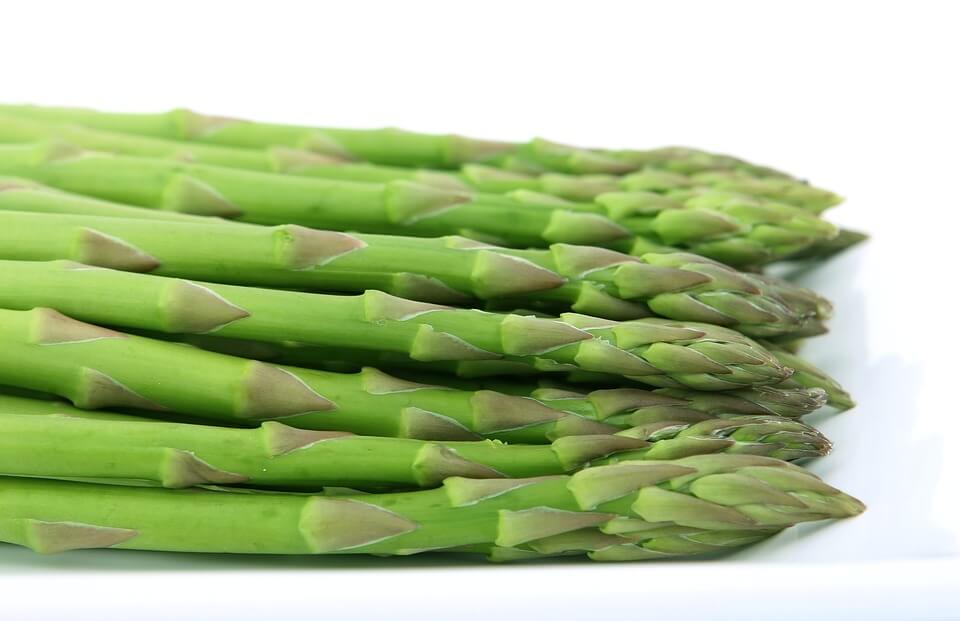
Asparagus is a vegetable that contains a lot of fiber and nutrients. It also contains asparagine, which is an organic chemical compound.
Asparagus is an excellent choice for people with gastrointestinal problems because it helps regulate the body’s natural processes by efficiently keeping waste moving through the system.
According to doctors, the indigestible fiber found in asparagus works by expanding in the colon.
The leafy green also has natural diuretic properties, making it an ideal food for people trying to lose weight or reduce bloating.
It is best eaten raw, and it works wonders to help with the digestive system. It can also be eaten as a side dish for other dishes, such as pasta or chicken.
Cucumbers
Cucumbers are a type of vegetable that is known for their soothing properties.
Cucumbers are an excellent food for people who have trouble digesting other vegetables because they tend to be high in water content which can help you stay hydrated and improve your bowel movements.
They also contain fiber, which helps people feel full on fewer calories than other vegetables.
Cucumber is a versatile food that can be used for many different purposes. It can be eaten raw, used as a drink, or eaten with other ingredients to make it more flavorful.
Moringa
Moringa leaves are known to have a lot of health benefits, such as the ability to reduce blood pressure and relieve constipation. Moringa is also known for its high antioxidants, which fight chronic diseases by killing free radicals.
It is a plant that the Egyptians have used for thousands of years to relieve constipation. In recent years, it has been one of the most popular plant-based foods in the world.
Moringa is a water-rich food that can help your digestive health and even help with weight loss. It is a highly nutritious food and has powerful nutrients such as vitamin C, iron, magnesium, and potassium.
Moringa leaves have been traditionally used to treat constipation in Africa and India for centuries. Its seeds have also been traditionally used in some African countries as a cooking oil replacement due to their high oleic acid content, which is believed to improve brain function.
Rhubarb
Rhubarb is an excellent food for constipation because it can help soften and loosen up the stool, which assists in removing any fecal matter.
It contains a compound known as sennosides, a popular herbal laxative.
Rhubarb is a vegetable that you can add to your diet. It contains fiber and water and other nutrients such as vitamin C, magnesium, potassium, and manganese.
Rhubarb is a plant with leaves that cannot be eaten. It is often sweetened and used as pies, tarts, or crumbles. The stalks can be sliced and boiled and added to oats or muesli for a good source of fiber.
Artichoke
Scientific research shows that when eaten regularly, artichokes may help promote good health and regularities in the digestive system because it contains prebiotic that is good for gut health.
Prebiotics can contribute to health and wellness by reducing the growth of harmful bacteria.
Artichoke’s fiber can bulge and soften stools in your intestines. It also contains a type of water-soluble chemical called cynarine that stimulates bile secretion from your gallbladder, which helps digestion and absorption of nutrients such as iron and vitamin C.
Artichokes are cooked whole and dipped in a variety of sauces. One popular dip is artichoke hearts with a lemon sauce, which can be eaten hot or cold. The outer petals can be pulled off, and the pulpy part can be eaten with a sauce or dip. The heart of the artichoke can be scooped out and cut.
Spinach
Spinach is a green leafy vegetable that belongs to the Amaranthaceae family. It is high in calcium and vitamin C and low in calories. Its leaves are rich in antioxidants that help prevent cancer and cardiovascular diseases.
One of the reasons why spinach is good for constipation relief is because it contains high levels of water and fiber, which help to keep bowel movements regular. It also has vitamins A, C, and K, which are essential for healthy digestion.
To add spinach to your diet, you can add it raw into a salad or sandwich or cook it in a quiche or pie. Baby spinach will be easier to digest, while tender greens should be included in most meals for added nutrients.
Alfalfa
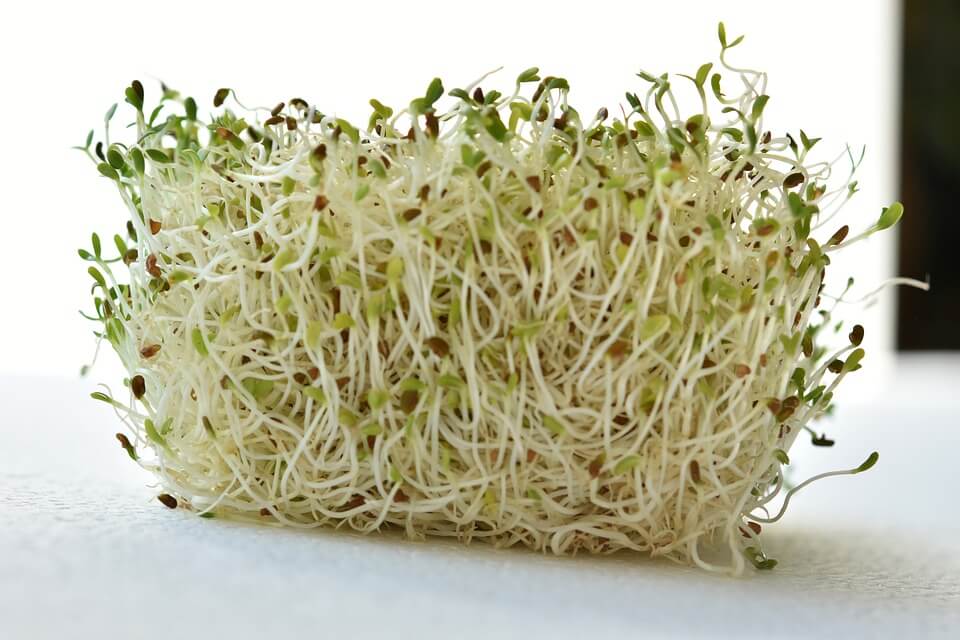
Alfalfa is an important raw food that can be used to relieve constipation. It is rich in dietary fiber and other micronutrients.
It has been an established practice for years, and nowadays, it is more than just a folk remedy or home remedy. Alfalfa is now considered very healthy food that should be part of everyone’s diet.
Humans have traditionally consumed alfalfa to prevent constipation. Still, recent studies have shown its benefits and the medicinal use of such plants, such as the treatment of cancer and liver disease.
Beans and Lentils
Beans and Lentils are rich sources of fiber, which helps you maintain a regular bowel movement and maintain a healthy digestive system.
Beans contain high amounts of insoluble fiber that take longer to pass through your body. On the other hand, Lentils have more soluble fiber that helps to move food through the digestive system quickly.
Lentils are usually easier to digest than beans, but they too have their benefits. They contain folate and zinc, which help with blood clotting and boost metabolism, respectively.
The beans and lentils that we can find in the store come in various shapes and sizes. They range from black turtle beans to chickpeas to kidney beans. Lentils are also used as a base for many recipes, including lentil soup, curry soup, dal soup, etc.
Whole grain bread
Whole grain bread is primarily dietary fiber-rich, which aids in the relief of constipation. The fiber is generally found within the inner layers of the whole grain flour. This helps move food through your digestive system more easily and quickly than whole wheat or white bread.
Whole grains are also rich in mineral content, primarily magnesium and iron. These minerals can help to keep your digestive system healthy and manage your appetite levels. Additionally, the fiber content will help to keep you regular too!
The fiber and complex carbohydrates in whole grains help keep the digestive tract clean, provide a steady flow of energy, and maintain a healthy weight.
Dried Apricots
Dried apricots are a great source of fiber that can help promote bowel movements and soften hard stool. They also contain potassium that helps regulate heart rate and blood pressure, iron to help prevent anemia, and antioxidants to fight skin aging.
Dried apricots are a popular, healthy, and easy snack to make. They can be eaten by themselves or with honey for a sweeter crunch.
Oatmeal
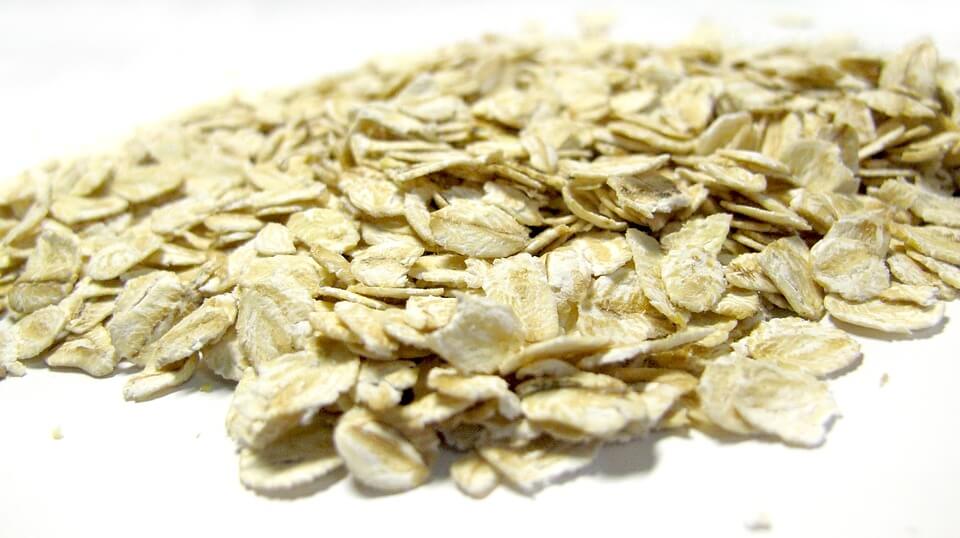
Oatmeal is a naturally absorbent food that can help relieve constipation. It also has no cholesterol and is good for heart health.
Oatmeal is considered to be the oldest cereal in the world. It can be traced to ancient Egypt, where it was used as food for the pharaohs. Today, oatmeal is enjoyed by people of all ages due to its versatility in preparation methods.
From boiling it for breakfast to adding toppings like nuts or fruit, oatmeal provides various options without compromising its nutritional value.
Chia Seeds
Chia seeds are a popular type of seed that has been used for centuries for its benefits to health and wellness. Not only can chia help to relieve constipation, but it is also a source of fiber and antioxidants.
Chia seeds have a particular property that allows them to form a gel when they contact water, which can help soften stool and make it easier to pass.
Chia seeds are a versatile ingredient and can boost the fiber content of any recipe with minimal effort.
They work great on cereal, oats, yogurt, smoothies, dips, salads & more. You can also mix into baked goods or desserts if that’s your thing!
Flax Seed
Flaxseed is high in fiber, which is good for your digestive system. This fiber does not digest completely, so it can help prevent constipation. Flax seeds are also high in omega-3 fatty acids, which are important for brain health and immunity.
Flaxseed has been widely used in the treatment of constipation since ancient times.
A major benefit of flaxseeds is that they can help to relieve constipation. Research around their weight-loss potential is ongoing, but some studies have shown that adding small amounts of flaxseeds to the diet appears to suppress body fat levels.
You can eat flaxseed on cereal and yogurt or use it in muffins, bread, and cakes. It is an excellent source of fiber.
Flaxseed is a good alternative for those who cannot digest dairy or other animal products. However, pregnant and lactating women should exercise caution when using the ingredient, as more research is needed.
Kefir
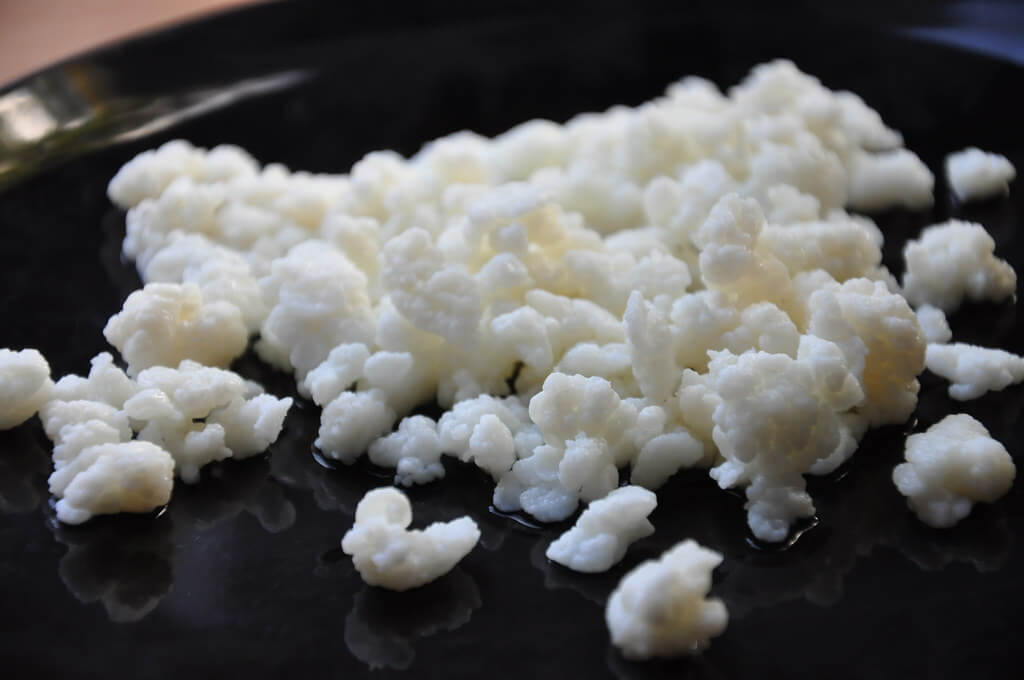
Kefir is a traditional fermented milk drink you can buy in stores or make at home. The word ‘kefir is derived from a Turkish word meaning “pleasant taste.”
Kefir is an easy way to boost your gut health and improve digestion.
Kefir has many health benefits because it contains probiotics and prebiotics that help maintain the balance of microorganisms in the digestive tract. It has been shown to reduce constipation, increase regularity, and protect against stomach ulcers and gastroenteritis.
Kefir is a fermented milk drink that can be enjoyed plain or added to smoothies & salads. It can also be mixed in with cereals and topped with fruits, chia seeds, hemp seeds, or oat Bran in order.
Aloe vera juice
Aloe vera juice contains a high concentration of fiber, which helps to soften and move the stool. It also has antibacterial properties that help to maintain a healthy digestive system.
Aloe Vera juice has been used in traditional medicine for centuries, but recently it has found its place in the modern diet. Aloe Vera juice helps relieve constipation and gives you a sense of well-being. It also helps flush out toxins in your body and maintains good health.
The juice does not need any preparation like juicing before consumption because the plant’s fleshy leaves contain all enzymes necessary for digestion.
Grapefruit juice
Grapefruit juice, an important part of the fruit’s diet and a refreshing summertime drink. It is also a great source of vitamin C and has tons of health benefits.
Constipation is not always the first thing that comes to mind when we think about grapefruit juice, but it can help relieve constipation if you drink it in moderation.
Grapefruit juice contains high levels of Vitamin C, which helps absorb fluids into your system. It also contains bioflavonoids that are believed to help move the digestive system along more efficiently.
Coffee
Coffee is a drink that almost everyone loves. It can provide the energy you need to wake up in the morning and sleep off at night.
Coffee can be a great way to relieve constipation. It is a drink made from the roasted seeds of two plants containing caffeine and other compounds that help speed up the rate at which water moves through your digestive system. The best time to drink coffee for constipation relief is after a meal.
It also has a lot of other health benefits. The caffeine in coffee can increase blood flow and oxygen levels, which increases mental alertness and physical performance.
Blackstrap Molasses
Blackstrap molasses is a thick, dark syrup made from sugar cane that can be found in some parts of the southern United States. It is typically used as a laxative.
Blackstrap molasses is a type of molasses that contains a lot of dietary fiber.
Some people consume blackstrap molasses as a breakfast drink because it provides them with vitamins and minerals and other nutrients. It also helps to increase bowel movements as well as strengthen the gut muscles.
Celery Juice
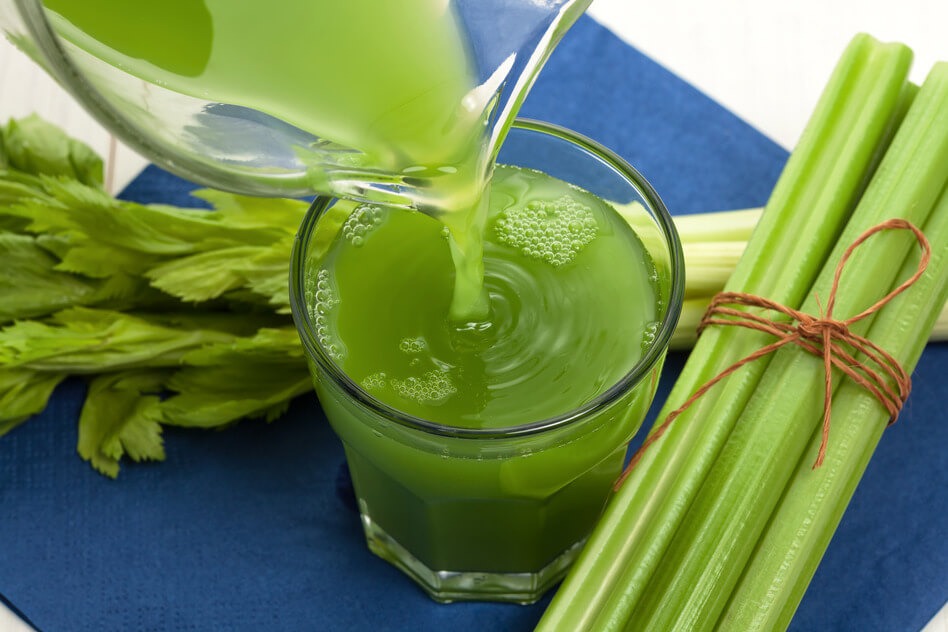
Celery juice has many health benefits; it also contains compounds that can help reduce cholesterol levels and maintain healthy bones.
Celery juice is a great option if you’re looking for relief from constipation without the side effects of medications or other products that may be unsafe for your stomach.
Celery juice is made by adding water to celery stalks and squeezing the pulp until all the liquid.
Coconut Water
Coconut water is a refreshing way to hydrate your body. It has been around for centuries in the tropics, where it is used to hydrate people with weak digestive systems.
Coconut water is rich in electrolytes and can help relieve constipation by hydrating your body. It contains natural sugars called fructose, glucose, and sucrose in liquid form, absorbed in the intestine instead of fermented by it.
It’s low in calories, so you can drink it at any time of the day without worrying about overdoing it.
Conclusions:
Constipation is a common issue that isn’t taken seriously enough, but the problem is very real for many people out there. We all know what it’s like to have agonizingly slow bowel movements that cause unbearable pain, so imagine being in constant pain because you have no way of relieving yourself.
It’s a real disappointment that affects the quality of life for all ages, from children to grandmas!
Many people, after a meal, experience feelings of discomfort and pain due to constipation. It can be a frustrating and uncomfortable experience.
So if you’re someone who suffers from constipation, the struggle is finally over! With the best foods to relieve constipation, you can finally feel relief from this troublesome condition.
Don’t forget to add water to all these lists of foods given, because water is essential for us, it keeps us hydrated and helps our body function.
Follow us on Pinterest for more Healthy Tips
